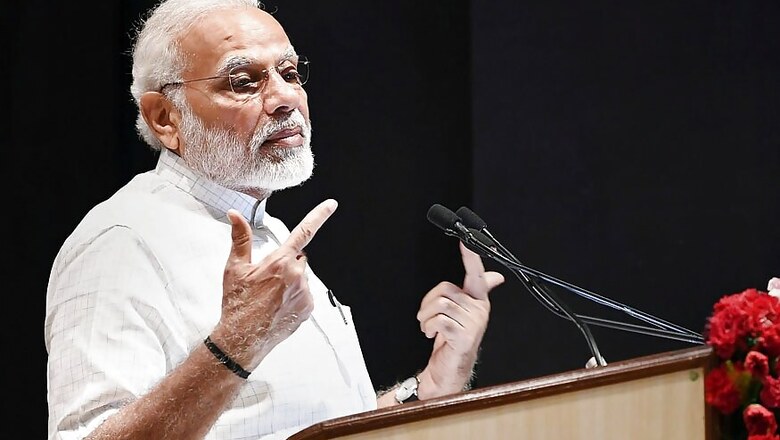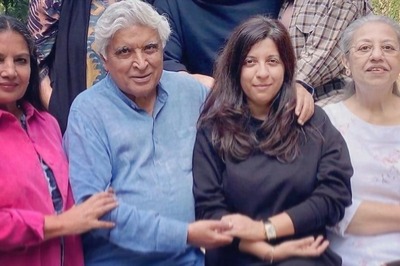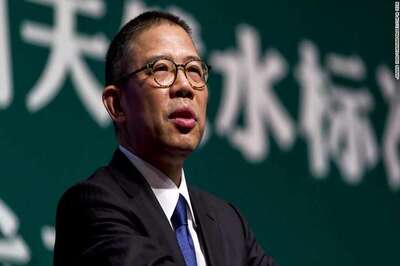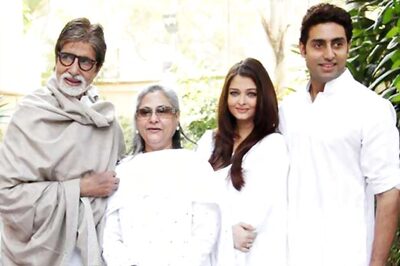
views
New Delhi: Prime Minister Narendra Modi has dismissed claims of dearth of jobs in the country, saying the lack of data on employment had given an opportunity to the Opposition to blame the government.
In an interview with Swarajya magazine, the Prime Minister said according to a study based on EPFO data, more than 70 lakh jobs were created in the formal sector last year in addition to those in the informal sector.
Quoting an international report, which showed how quickly poverty in India was declining, Modi asked if it was possible in the absence of employment.
“More than one crore houses have been constructed in the last one year; how much employment would this have generated? If road construction has more than doubled per month, if there is tremendous growth in railways, highways, airlines, etc, what does it indicate? Is it possible without employing more people in equal proportions?” he asked.
Modi refuted the Opposition’s allegations of lack of employment opportunities for the youth and said, “The previous Karnataka government claimed to have created 53 lakh jobs. The West Bengal government said it created 68 lakh jobs in the last term. Now, if states are all creating good numbers of jobs, is it possible that the country is not creating jobs? Is it possible that states are creating jobs but the Centre is creating joblessness?”
Commenting on the state of the Indian economy when the NDA took over from the UPA in 2014, the Prime Minister also raised suspicions about some budget figures under former finance minister P Chidambaram. However, he said the government did not find it fit to come out with a White Paper on the dismal condition of the economy, which “was much worse than expected”, as it wanted to avoid “playing politics”.
On the issue of farmers’ distress, Modi said the promise of doubling farmers’ income was being addressed in a four-fold strategy that involved cutting inputs costs, raising prices of produce, ensuring minimum harvest and post-harvest losses, and creating more avenues for income generation.
“If you focus closely on our policy interventions, they are aimed at helping farmers at every step — beej se bazaar tak,” he said.
The Prime Minister, who recently met industry titans, said the issues discussed revolved around how the corporate sector could further contribute to India’s growth. He said, “Business leaders said what we are doing (reforms such as GST and bank loan resolution through bankruptcy courts) was removing the bad elements in business and that is good for business.”
Brushing aside allegations that the government did not seem too keen on privatisation, as the recent example of Air India showed, the Prime Minister said in the case of the airline, “the government has done what it had to with utmost sincerity”.
“You have to differentiate between the lack of response to one sale offer and a policy decision. At the cabinet level, we have cleared the sale of not only Air India but several other (loss-making) public sector units – this itself is a historical in many ways; that they are yet to be sold is the result of timing and process,” he added.
Emphasising on his concept of ‘minimum government, maximum governance’, Modi said less dependence on governments would make the lives of people hassle-free. He quoted instances of self-attestation for submission of document copies and scrapping interviews for Class 3 and Class 4 jobs in the government to elucidate his point.
“For ease of doing business, the earlier mandatory 56 registers maintained under various labour laws have now been replaced by five common registers and 36 forms have been reduced to 12. All the existing labour laws are being simplified, rationalised and amalgamated into four labour codes. Processes for incorporating a company have been simplified and it is now possible to get it done in 24 hours. GST has been designed to eliminate Inspector Raj with the help of information technology. From returns to refund, everything happens online,” he said.
Responding to a question on one tax slab under GST, Modi asked if one could “have milk and Mercedes at the same rates”. “…When our friends in Congress say that they will have just one GST rate, they are effectively saying they will tax food items and commodities, which are currently at zero or 5 per cent, at 18 per cent,” he added.
The Prime Minister said criticism over GST was due to the “teething troubles” as “GST was a massive change, requiring a complete reset of one of the world’s largest economic systems. The reform merged 17 taxes, 23 cesses into one single tax”.


















Comments
0 comment